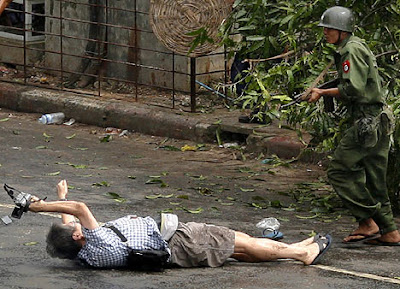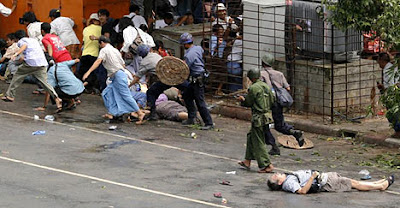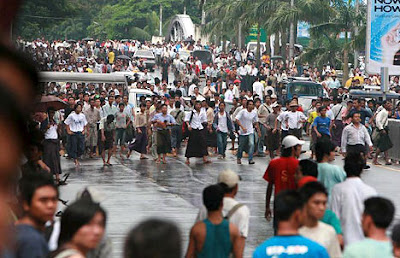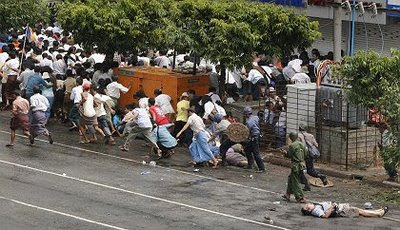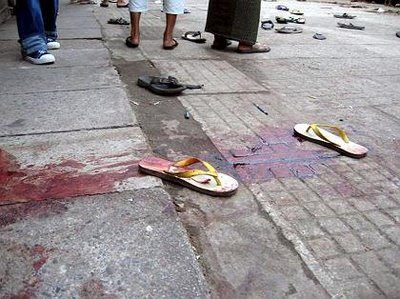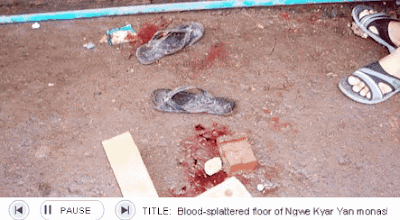Remarks by Mr Vanu Gopala Menon, Singapore’s Ambassador to the UN at the UN Security Council Session on the Situation in Myanmar, 5 Oct 07
Thank you, Mr President, for giving me the floor as ASEAN Chair,
1 As a neighbour of Myanmar and a fellow ASEAN member, it is with a heavy heart that we speak today. Recent events in Myanmar cannot be overlooked or ignored, even by Myanmar’s friends and neighbours. This is why on 27 September 2007 we issued a statement as ASEAN Chair. All the ASEAN members were present, including nine of ten Foreign Ministers. The statement expressed revulsion over reports that the protests were being suppressed by violence. It called for restraint, national reconciliation, the release of political detainees including Daw Aung San Suu Kyi, and for Myanmar to work towards a peaceful transition to democracy. In addition, the statement expressed support for the visit of UN Special Envoy Ibrahim Gambari. It also referred to the serious impact on ASEAN’s credibility. It therefore cannot just be an internal matter of Myanmar.
2 On 29 September 2007, my Prime Minister, Mr Lee Hsien Loong, wrote to Senior General Than Shwe to convey his deep concern and to urge Myanmar to work with Mr Gambari to find a way forward. On 2 October 2007, my delegation in Geneva delivered a statement at the Fifth Special Session of the Human Rights Council on the draft resolution on Myanmar and to stress the importance of supporting Mr Gambari’s mission. On 3 October 2007, Prime Minister Lee met with Mr Gambari to assure him of ASEAN’s full support and to encourage him to press on with the UN’s efforts.
3 But we are here today to look forward not back. To move forward, there are certain realities that we have to acknowledge.
4 First, we need to recognize that the UN’s efforts, as embodied by Mr Gambari, are unique and irreplaceable. At this stage, Mr Gambari represents our best hope and is also the only game in town. Mr Gambari is an experienced and gifted diplomat who seems to have gained the trust of both sides. The international community should buttress his position and invest him with the requisite support, authority, and prestige. Mr Gambari should return to Myanmar and re-assume his good offices role as soon as possible to sustain the momentum. We urge the Myanmar Government to continue to cooperate with the UN and Mr Gambari.
5 Second, we should avoid falling into the trap of over-simplification. The situation in Myanmar is complicated. As the Secretary-General himself has noted, we should not prematurely try to pigeon-hole Mr Gambari’s visit as a “success” or “failure”. He has succeeded in beginning a process that can bring change to Myanmar. The fact that Myanmar has allowed Mr Gambari to visit three times, most recently in the midst of the present crisis, is encouraging. It shows that the Myanmar authorities want to maintain a line to the UN. There are also reports that the authorities have released some of those detained. Unfortunately, many others are still being detained and arrests reportedly continue. Yesterday, Senior General Than Shwe announced that he was willing to meet with Daw Aung San Suu Kyi. But he imposed “pre-conditions” on this meeting, and most regrettably, Daw Aung San Suu Kyi remains in detention. Mr Gambari’s visit is the start of a long and arduous process.
6 Third, we have to be pragmatic. It would be a grievous mistake to think that if the SPDC left the scene tomorrow, all would suddenly be well and all problems would automatically be resolved. The military is a key institution in Myanmar that cannot be wished away. Any peaceful solution to the crisis will have to involve all parties, including the military. If the military is not part of the solution, there will be no solution. If the process is mishandled it could result in greater instability and more suffering for the Myanmar people. Thant Myint-U, a former UN Secretariat official and grandson of U Thant, warned recently that the world must be careful that the change it wants to see in Myanmar does not lead to the anarchy seen in Iraq. Myanmar is not a homogeneous state. There are many armed ethnic groups that are opposed to central government rule and only a very tenuous ceasefire prevents the renewal of hostilities. This should not be an excuse for delaying necessary steps forward. But neither do we want a Yugoslavia in Southeast Asia.
7 There has also been talk about additional sanctions. My delegation can understand the impulse to punish unacceptable behaviour. Indeed, we should not rule this out. But we have to pause to consider dispassionately what the real impact of additional sanctions will be. How will they affect a regime that is only tangentially connected to the rest of the world? Will they help or hinder the UN’s role? How will they affect the willingness of the SPDC to cooperate with Mr Gambari? What is their impact on the people of Myanmar? All such actions should have only one objective, which is to strengthen Mr Gambari’s hand as an effective mediator.
8 Fourth, ASEAN will take a responsible position. Myanmar is part of the ASEAN family. Whatever we may think about the behaviour of a family member, it is still a family member. But ASEAN’s influence is limited. This was underscored last year when the Myanmar authorities refused to seriously engage the ASEAN Envoy. Yet, the same authorities received Mr Gambari and arranged a substantial programme for him, which included meetings with Senior General Than Shwe and Daw Aung San Suu Kyi. This was a clear signal of Myanmar’s preferences.
Mr President,
9 It is in everyone’s interest to keep Myanmar in the ASEAN family. But we are not Myanmar’s only neighbour. China and India are two large countries with a long history of engagement with Myanmar. We believe that they are uniquely placed to play a role. In this regard, allow me to commend China for its quiet efforts which we believe were instrumental in securing a substantive and useful visit for Mr Gambari. We hope that India will play a similar role. Likewise, Japan has a role to play because it is a major aid donor to Myanmar. All of us – the international community as a whole – must do our part. Because of the size and complexity of the undertaking, the good offices of the UN and Mr Gambari offer the only new way forward.
Thank you.
. . . . .
(UN Photo/Devra Berkowitz)


